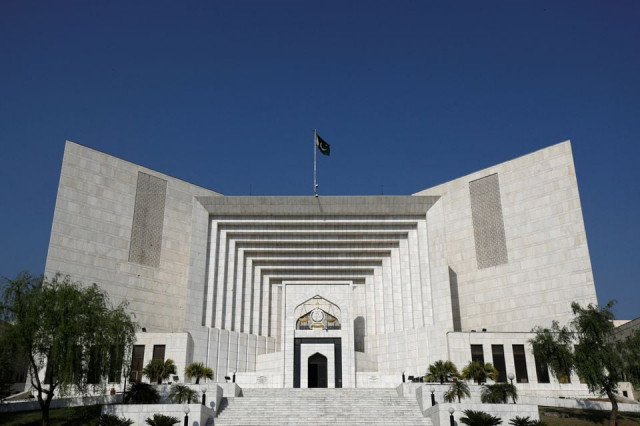Dams fund has over Rs16 billion, SC informed
CJP Bandial says money in fund will not be spent to repair flood damage

The Supreme Court on Thursday directed the auditor general of Pakistan to review the records of the Diamer Bhasha dam fund and observed that the money in the dams fund would not be spent on repairing the damage caused by recent floods.
A three-member bench, headed by Chief Justice Umar Ata Bandial, heard the Diamer Bhasha and Mohmand dams execution case. The chief justice observed that the auditor general’s office had full access to the records of the dams fund.
The court directed the auditor general to review the entire record of the donations and capital disbursements together with the State Bank of Pakistan (SBP) and identify whether or not there were any irregularities in the documents.
State Bank officials informed the court that the dams fund currently had more than Rs16 billion but so far neither any withdrawal had been made from the fund nor any expenditure incurred from that money.
The court was informed that the money deposited in the fund was invested in government securities such as T-bills by the National Bank. Sitting on the bench, Justice Ijazul Ahsan said that the fund had Rs10 billion which would become Rs17 billion on January 26.
The Chief Justice of Pakistan said that the record of the donors of the dams fund was available on the website of the Supreme Court. He added that he would tell the people which machinery was bought from this fund. He stressed that the dams fund money would not be spent on repairing flood damage.
During the hearing, counsel for the Water and Power Development Authority (Wapda) drew attention towards the transmission lines. The chief justice said that transmission lines were very important for the dams project and asked the lawyer to inform the court whether there was a need for instructions for the release of funds.
The Power Division secretary said that the circular debt in the country had risen to Rs2.6 trillion, adding that a further increase in it was also expected. WAPDA’s lawyer said that Power Division had to pay Rs240 billion to the Central Power Purchasing Agency (CPPA). He added that because of non-payment to contractors, work on dams was affected.
Also sitting on the bench, Justice Jamal Khan Mandokhel said maybe the government was unable to make the payment because of paucity of funds. The counsel for Wapda also informed the court that work on dam projects was affected because of the floods and security situation.
The court was informed that the Mohmand dam’s infrastructure was damaged by the floods, but added that the amount allocated in the Public Sector Development Programme (PSDP) was also not available. The lawyer for Wapda said that international experts also left the country after the Covid outbreak.



















COMMENTS
Comments are moderated and generally will be posted if they are on-topic and not abusive.
For more information, please see our Comments FAQ